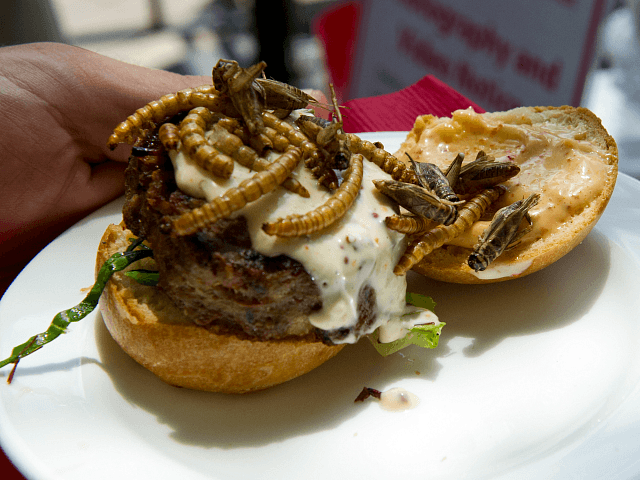The European Union will soon permit the sale of locusts, crickets, grasshoppers, and mealworms as food across the continent.
The European Food Safety Authority is expected to announce the ruling within the next few weeks, granting bugs a “novel food” classification that would allow the mass production of bug-based food items by autumn.
“These have a good chance of being given the green light in the coming few weeks,” the secretary-general of the International Platform of Insects for Food and Feed, Christophe Derrien, told The Guardian.
“We reckon these authorisations will be a breakthrough for the sector so we are looking for those authorisations quite impatiently. They are taking the necessary time, they are very demanding on information, which is not bad. But we believe that once we have the first novel food given a green light from EFSA that will have a snowball effect,” Derrien added.
In 1997, the EU passed a law requiring a “novel food” classification for products that did not have a history of being consumed as food by Europeans.
The United Kingdom, Belgium, Finland, Denmark, and the Netherlands all decided that the law did not apply to animals and therefore continued to permit the sale of bugs as food. Countries like France, Spain, and Italy decided to ban the sale of insects as food as a result of the law.
The eating of insects has long been touted by climate change activists as a possible replacement for meat, which they claim negatively impacts the environment. However, eating bugs has remained a niche practice in the West.
Industry experts hope that the loosening of restrictions will open up market opportunities for the edible insect business, with companies in Spain, France and Switzerland ramping up production.
“We are expecting the next few years will be very interesting ones and obviously the novel food authorisations will definitely help,” Derrien said.
“The sort of foods ranges from whole insects as an aperitif or as snacks to processed insects in bars or pasta or burgers made out of insects,” he added.
“We believe that insects for food is one solution for some of the biggest challenges we are facing on the planet. In the context of scarce resources, and insect production is not too demanding, you have the capacity to produce high-quality protein. That is a very promising solution,” Derrien concluded.
Follow Kurt on Twitter at @KurtZindulka

COMMENTS
Please let us know if you're having issues with commenting.